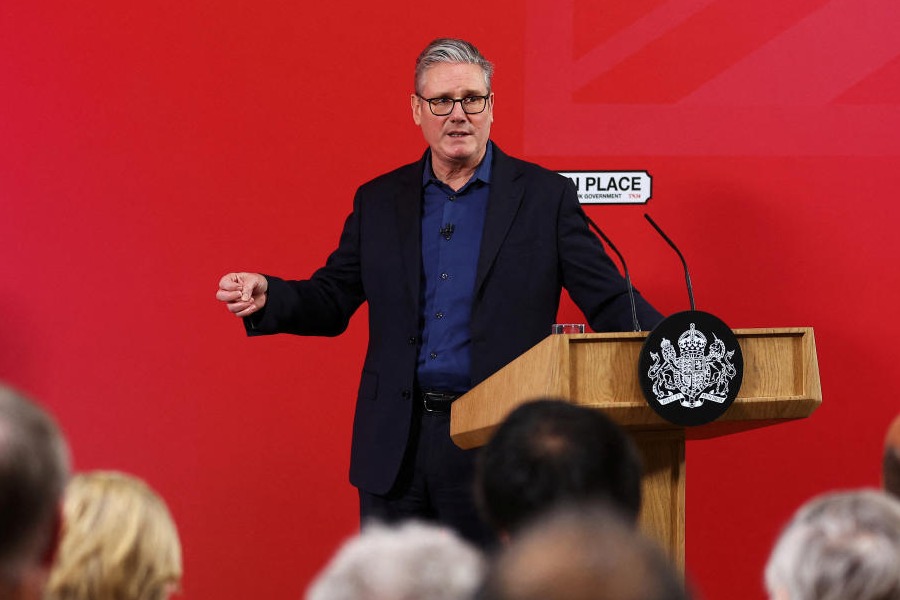New Delhi, Sept. 7: Manmohan Singh’s government is torn between interests that want a law on private sector job quota and those suggesting a more moderate line.
Although the Prime Minister spoke only of “affirmative action” in his media conference last Saturday, some “Mandalised” allies of the Congress are seeing the debate on the proposal to introduce private sector reservation as the precursor to a law.
Laloo Prasad Yadav’s Rashtriya Janata Dal and the Lok Janshakti Party of Ram Vilas Paswan are not the only proponents of legislation, but a section of the Congress itself, too.
The other view in the government favours exploring different options before enacting a law, such as “trying to correct historical discrimination through education rather than jobs”. “It is not realistic to expect industry not to place a premium on merit,” explained a source in the Prime Minister’s Office.
“Better to equip the Dalits, tribals and OBCs (other backward classes) so that they can compete with others rather than leave them to the mercy of lawmakers,” the source added.
Maharashtra had recently passed a law on private sector reservation but industry leaders reportedly threatened to pull out of the state if it was enforced. This has made the Centre wary, sources said.
Singh is stepping with caution. “The opportunities for scheduled castes and tribes, OBCs and similarly placed disadvantaged groups in the private sector need to be endorsed,” he had said.
It was mere iteration of the ruling alliance’s common minimum programme and stayed within the limits of the Congress’ stated position.
“The modalities,” the Prime Minister added, “have to be worked out in close consultation with the private sector. We have proposed a GoM (group of ministers) and what is possible without legislation. Our hope is that private industry shows sensitivity to providing opportunities for marginalised groups.”
For now, the Centre’s concept of “affirmative action” is to get companies to fund Dalits and tribals by offering them scholarships at educational institutions and providing in-house training.
There is scepticism, however, whether the steps the government has in mind will prompt the private sector into action to help socially disadvantaged groups to the extent it expects.
“OBCs have not benefited particularly from Mandal because the government sector has been shrinking. Industry is part of the milieu in which the rest of society lives. Our experience shows that even for jobs at the lowest level, upper castes are preferred,” a source in Laloo Prasad’s party said.
The GoM, the source said, has served the immediate purpose of opening up a debate. They hope the discussions will reveal the ground situation “because at some point, private industry will have to make public statistics of caste-wise employment”.










